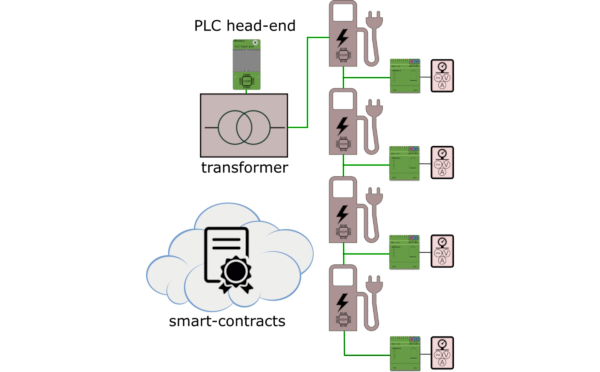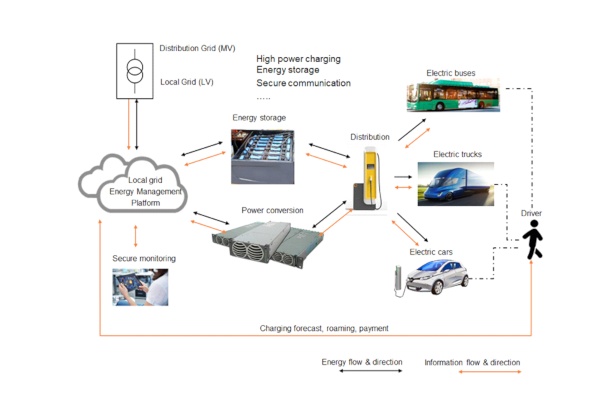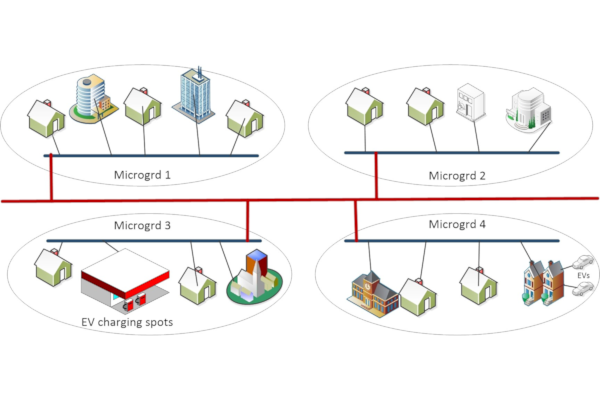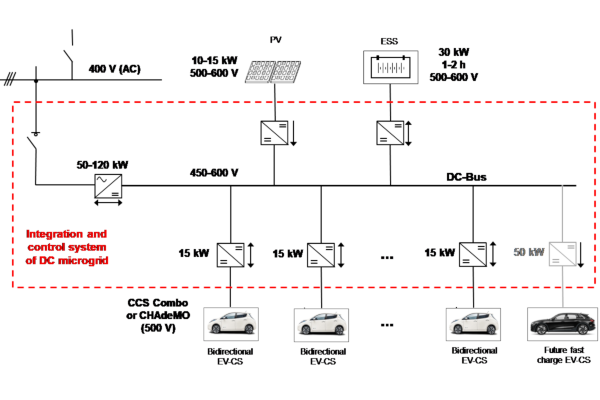PROGRESSUS Use Cases
Validation on test-beds has been recognized as the best practice in the field of smart grids for not only validating technologies and concepts, but also as a means of demonstration in real-life operating scenarios. Therefore key test-bed modules will be integrated as an outcome of the proof-of-concept phase in order to demonstrate the ability of the smart grid infrastructure to significantly reduce the peak demands and CO2 emissions.components.
In PROGRESSUS, four use cases will be implemented and demonstrated: UC 1): Flexibility management, smart charging and grid utilization optimization with improved resiliency, UC 2) EV high-power charging infrastructure, UC 3) promotion of cooperation among buildings in self-organised microgrids, and, UC 4) intelligent DC microgrids embedding innovative modular components.

Use Case 1 - Flexibility management, smart charging and grid utilization optimization with improved resiliency
Flexibility management has become an umbrella-term for a collection of different technologies. A particularly energy-intensive, interesting scenario is the smart and fast charging infrastructure for local storage and Battery Electrical Vehicles (BEV).

Use Case 2 - EV high-power charging infrastructure
Use case 2 refers to the integration of various sub-systems developed by the PROGRESSUS partners, into a real life use case operational in the field.

Use Case 3 - Promotion of cooperation among buildings in self-organised microgrids
This use case aims at showcasing the effectiveness of a cooperative energy management scheme when applied to multiple self-organised microgrids.

Use Case 4 - Intelligent DC microgrids embedding innovative modular power converters and providing grid services
This use case aims at demonstrating the effectiveness of energy management approaches enhancing the concept of DC microgrid with the objectives of proving specific local services to the grid and promoting new infrastructures supporting electromobility and modular fast charging enabling long-distance drive with EVs.


